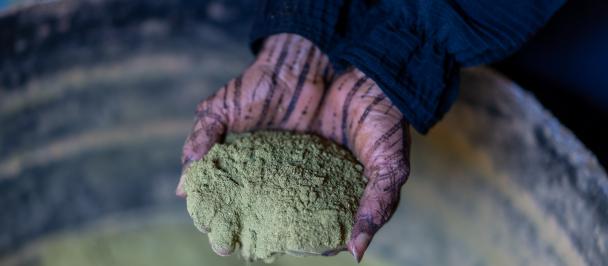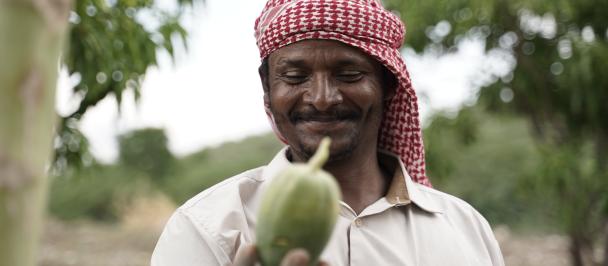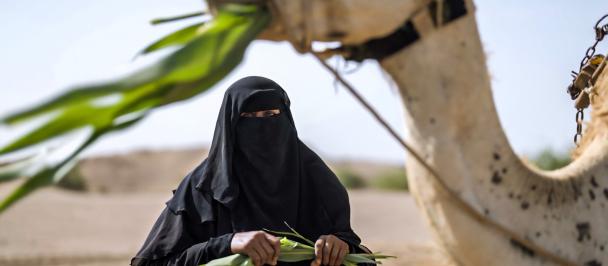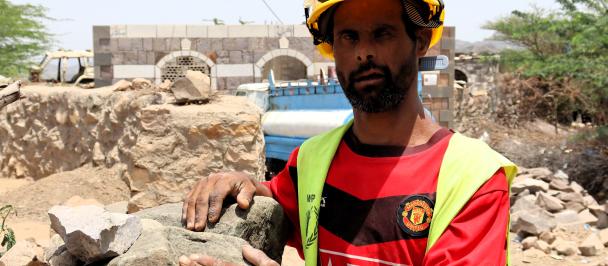Water Resilience: Al Mazariqah's Journey from Devastation to Prosperity
March 27, 2024
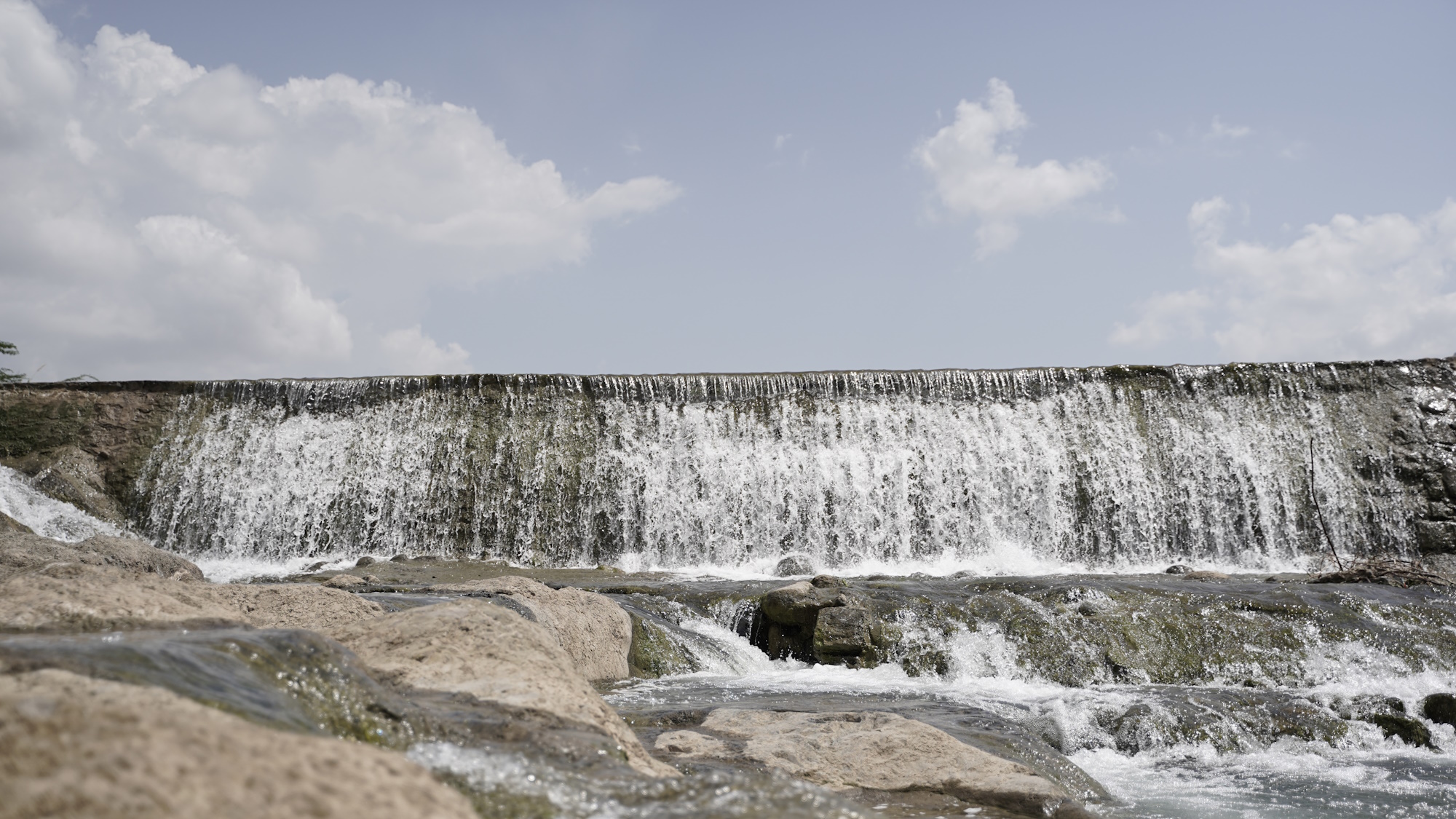
Water flows into Al Mazariqah's irrigation canal, bringing life to farmland in Bajel District, Hodeidah Governorate.
The village of Al Mazariqah, situated in Bajel District, Hodeidah Governorate, Yemen, provides a remarkable example of human resilience and the power of community. Recently, this farming neighborhood was severely impacted by frequent flooding and damage to an irrigation canal essential for watering crops. This drastically affected the village's ability to farm using traditional methods, leaving farmers in a desperate search for solutions to preserve their agricultural lands and maintain their way of life.
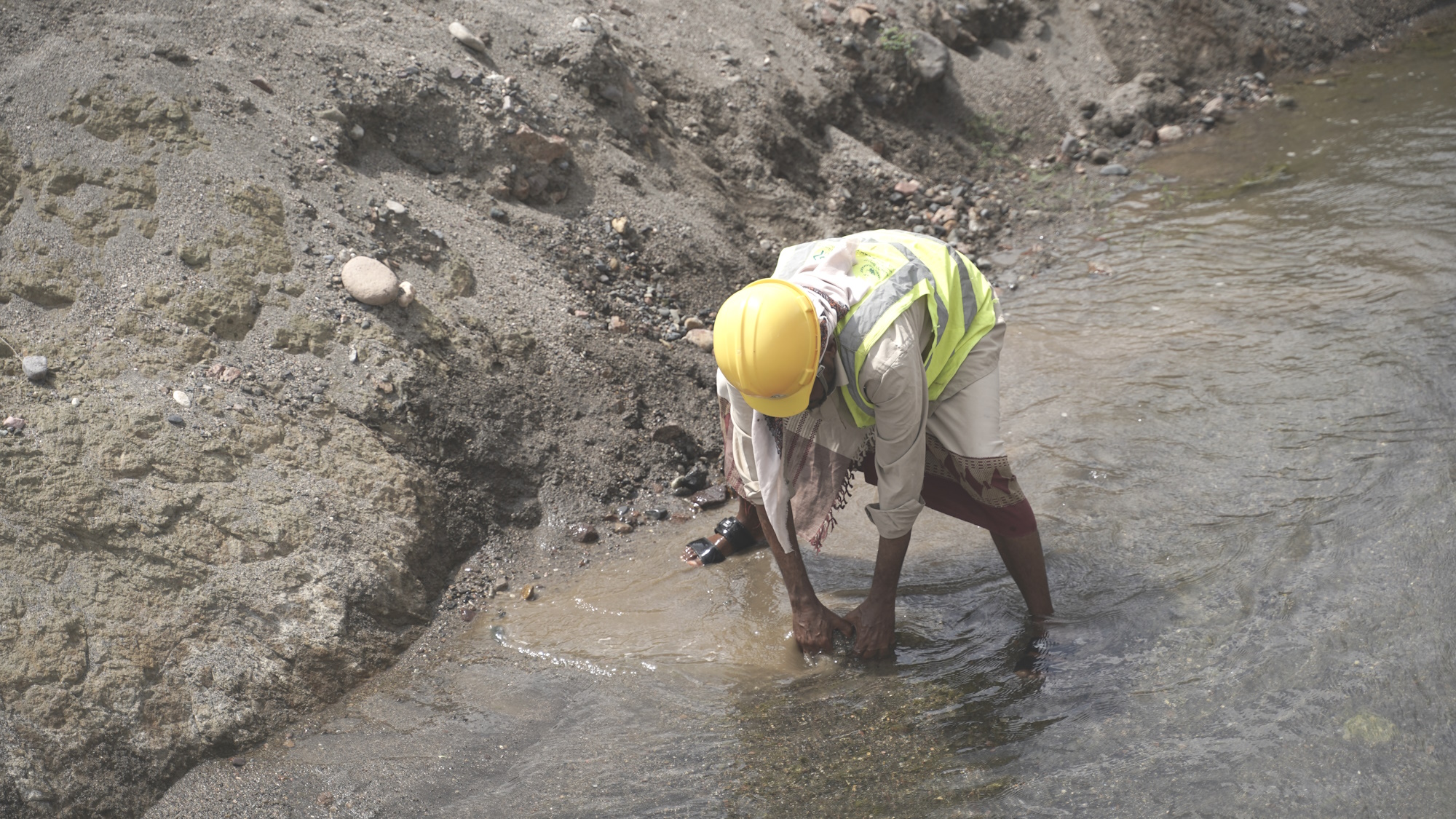
Ali Bin Ali, a participant in the ERRY III Joint Programme FFA, actively engaged in the rehabilitation of the irrigation canal in Bajel District, Hodeidah Governorate.
"Last year hit us really hard," remembers Ibrahim Omar, a farmer from Al Mazariqah, who, along with his neighbors, was affected by the flooding. "What we worked for, our dreams vanished with the floods. It felt like we were always on the losing side."
The damage was catastrophic, wiping out farms, tearing down trees, and ruining crops. To survive, the villagers built temporary canals, but these too were swept away by the next wave of flooding.
Through the ERRY III Joint Programme, financed by the European Union and the Government of Sweden, facilitated through the World Food Programme's Food Assistance for Assets (FFA), alongside local organization Benaa Foundation, a comprehensive project to rejuvenate the village's irrigation canal was initiated. Three kilometers of the canal were identified for rehabilitation, with an aim to ensure the agricultural prosperity of Al Mazariqah. The Food Assistance for Assets (FFA) programme provides food or cash to participants in return for their work on projects like this one, which are designed to improve community infrastructure and support long-term food security.
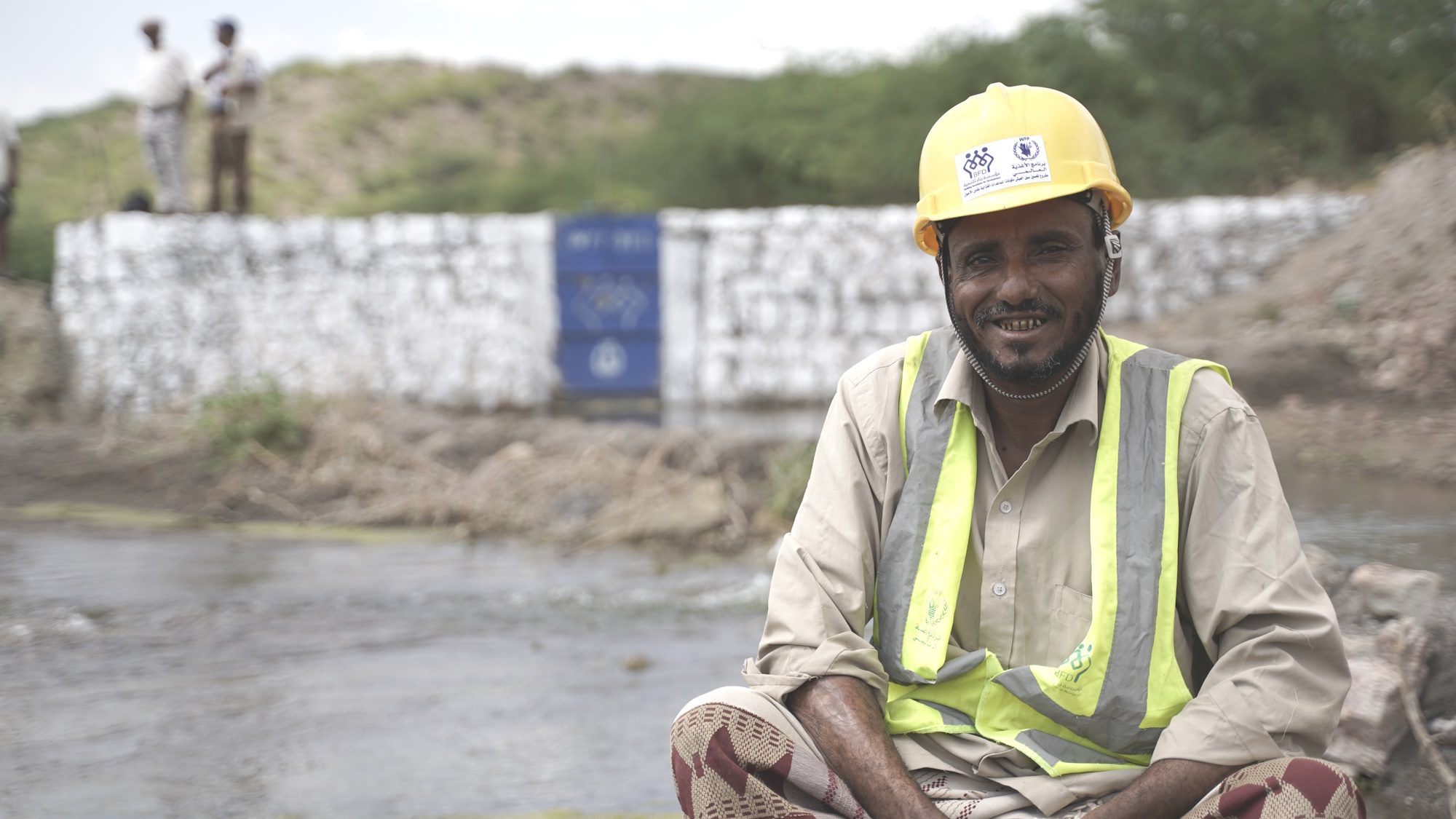
With the newly built water gate in the background, Ali Bin Ali talks how the initiative has reduced flood risks and secured a reliable water source for the community's farms in Bajel District, Hodeidah Governorate.
"We dedicated 60 days to the canal, working alongside community members," shares Ali Bin Ali, an FFA participant. “The work we did together was not just about restoring the canal but about rebuilding lives, providing immediate financial support, and securing long-term agricultural stability.”
The project's success surpassed expectations. A new water gate now stands tall, regulating the water flow into a canal that has been both widened and deepened. Protective walls and paved sections ensure the canal's resilience, safeguarding nearby agricultural lands and the future of Al Mazariqah's farms.
"The restoration has been a lifeline," says Ahmed Salem, a local farmer. "Where floods once brought ruin, we now see harvests."
This sentiment echoes throughout the community, as local resident Ibrahim Omar reflects on a past filled with difficulty.
"We suffered a lot," Ibrahim shares.
With the canal's restoration, a new chapter of growth and resilience has begun.
"Now, our crops thrive, and our children have hope," Ibrahim notes, highlighting a significant boost in crop production. Ibrahim's plans to further enlarge and enhance the canal reflect a collective renewal of faith in communal agricultural practices.
As Ibrahim looks out over his thriving fields, he sees more than just sorghum and corn; he sees a future where water is no longer a source of fear but a foundation for growth. "This canal is our promise to the future," he declares, a promise made possible by a community united against adversity.
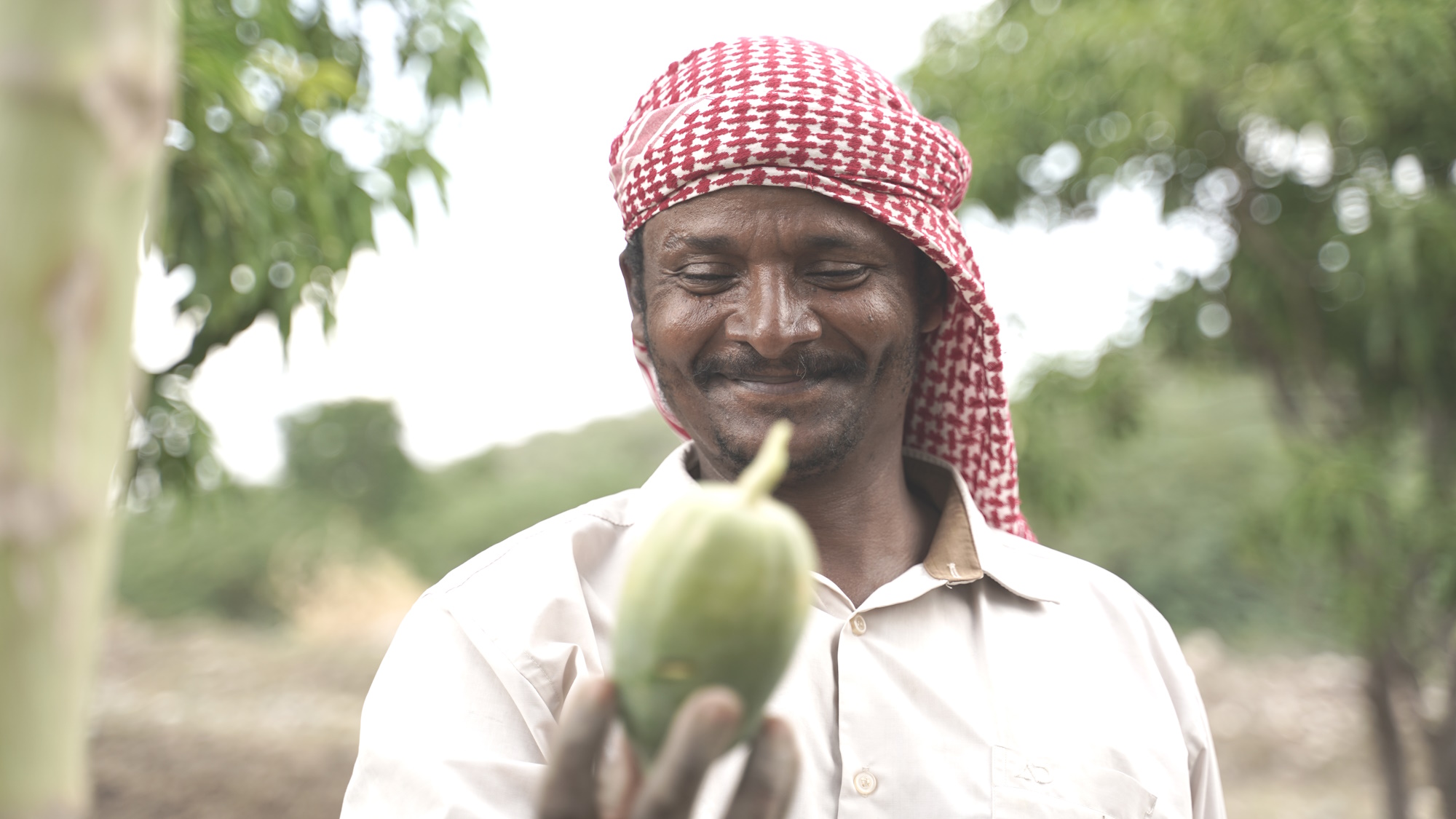
Ibrahim Omar, a farmer from the community, is happy to see his crops doing better after the canal was restored, in Bajel District, Hodeidah Governorate.
The successful restoration of Al Mazariqah’s irrigation system not only underscores the tangible benefits of cooperation but also highlights the community’s resilience, setting a vibrant example of how joint efforts can rebuild and enrich communities facing adversity.
The ERRY III Joint Programme, through efforts by the United Nations Development Programme, World Food Programme, Food and Agriculture Organization of the United Nations, and International Labor Organization, with support from the European Union and Government of Sweden, demonstrates the impact of collective action towards improving livelihoods, ensuring food security, and strengthening community resilience in Yemen.

 Locations
Locations
